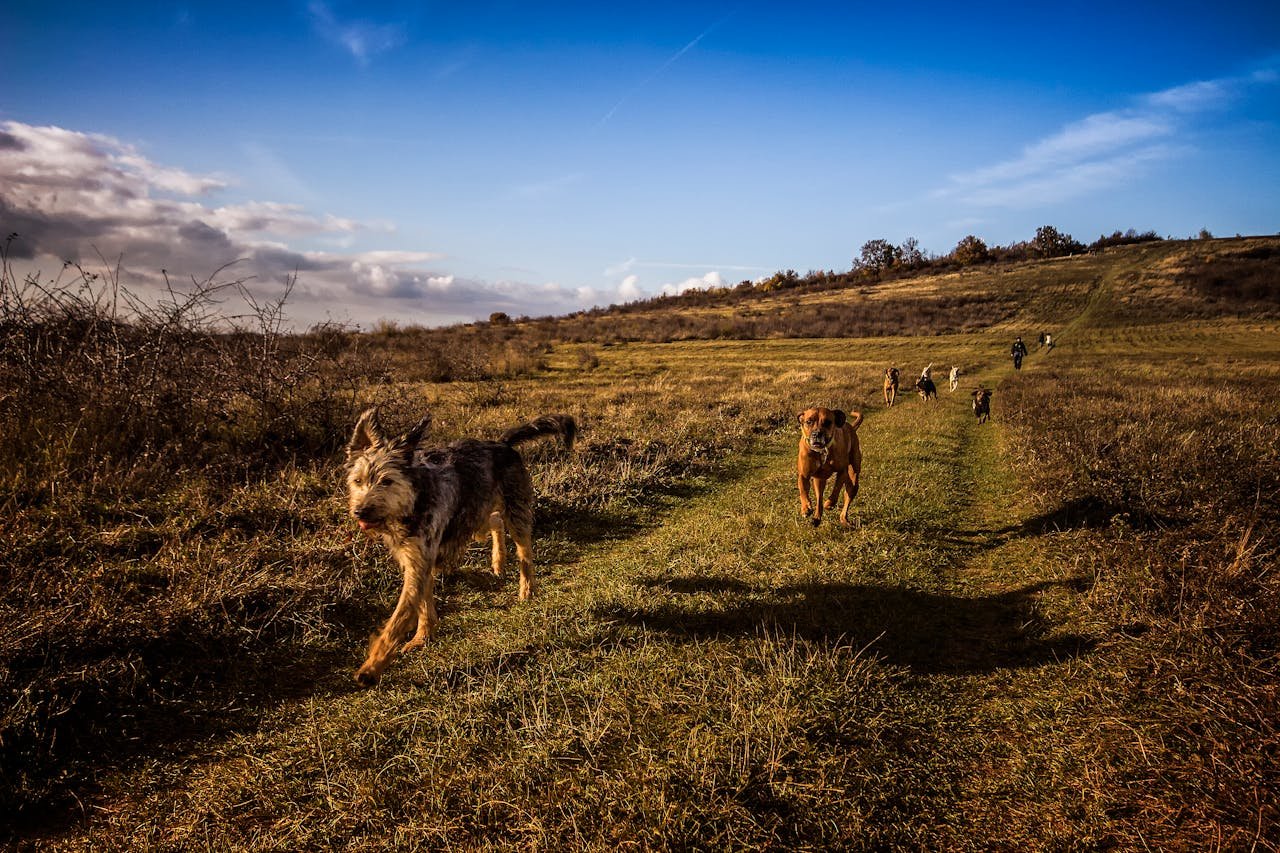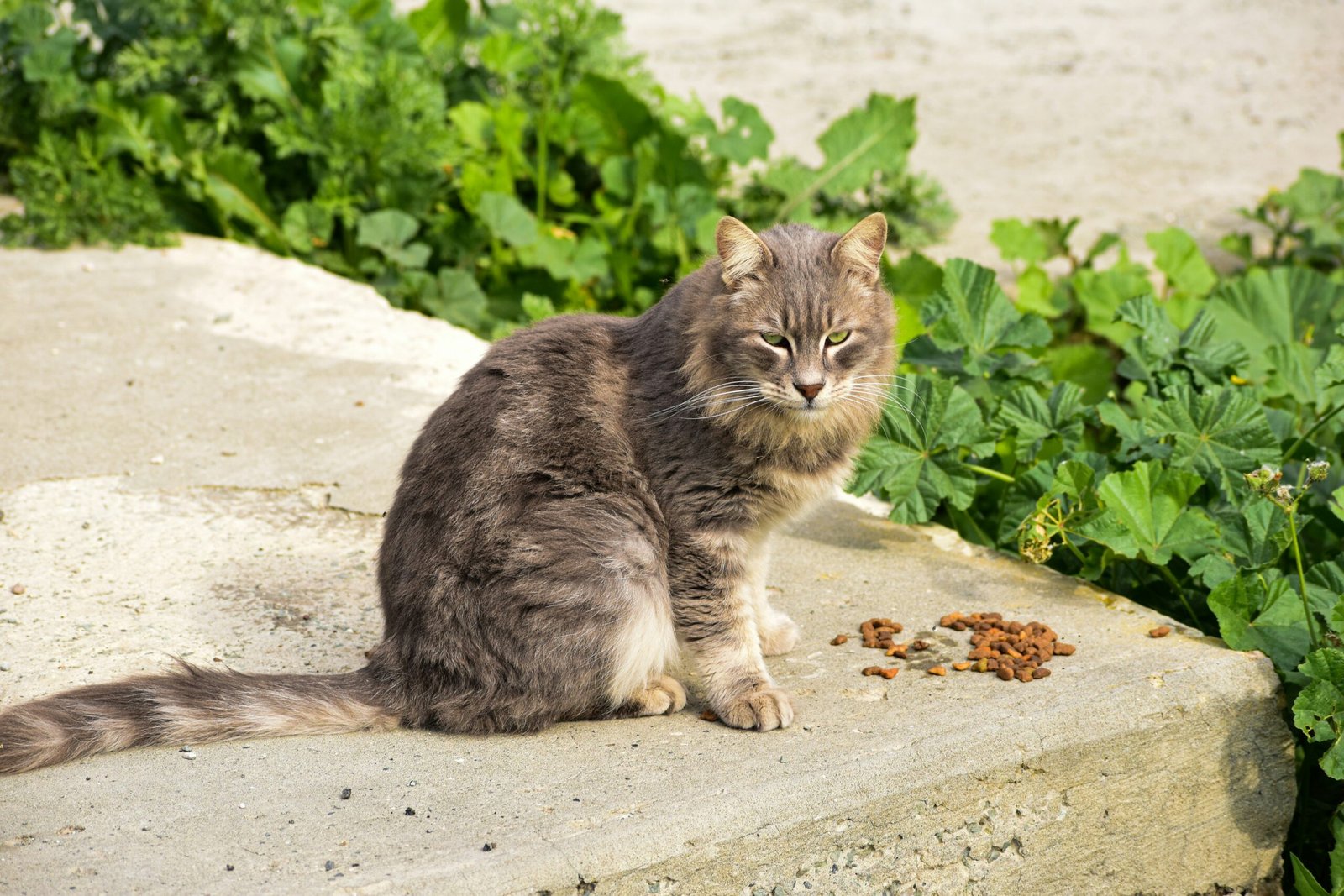Introduction to Farm Dogs
Farm dogs play a crucial role in agricultural settings, serving as indispensable assistants to farmers and ranchers. These dogs are specifically bred and trained to perform various tasks that are vital to the efficient operation of a farm. Their primary responsibilities include herding livestock, guarding animals and property, and protecting the farm from pests and predators. The herding instinct in many farm dog breeds enables them to manage and move livestock effectively, ensuring the animals’ safety and facilitating tasks such as grazing and transportation.
Guarding is another essential function of farm dogs. These vigilant canines safeguard livestock from potential threats, including wild predators like wolves and foxes. Their acute senses and natural protective instincts make them excellent watchdogs, providing farmers with peace of mind. Additionally, farm dogs help control pest populations, such as rodents, thereby preventing the spread of diseases and protecting crop yields.
Historically, farm dogs have been integral to agricultural practices for centuries. Their origins can be traced back to early human civilizations, where dogs were domesticated and trained to assist with hunting and protecting settlements. Over time, selective breeding has led to the development of specific farm dog breeds, each possessing traits suited to particular tasks and environments. For instance, Border Collies are renowned for their herding capabilities, while Great Pyrenees are known for their guarding prowess.
Farm dogs have evolved alongside human agricultural practices, becoming more specialized and efficient in their roles. Today, they continue to be a vital part of modern farming, contributing to the overall productivity and security of agricultural operations. The enduring partnership between humans and farm dogs highlights the significance of these animals in sustaining and enhancing agricultural livelihoods.
Key Characteristics of Effective Farm Dogs
Effective farm dogs possess a combination of physical and behavioral traits that make them indispensable on the farm. The physical characteristics of such dogs are paramount, with size, strength, and endurance being the primary attributes. Medium to large-sized dogs are typically preferred for farm work as they can manage larger livestock and cover extensive areas without fatigue. Strength is essential for tasks such as herding and guarding, while endurance ensures the dog can work long hours without tiring.
Behavioral traits are equally important in determining a dog’s suitability for farm work. Intelligence is a key characteristic, as farm dogs must quickly learn and adapt to various tasks. Breeds known for their high intelligence, such as Border Collies and Australian Shepherds, excel in this regard. Trainability is another crucial trait; dogs that are eager to learn and respond well to commands are invaluable in a farm setting. This quality ensures that the dog can be taught specific tasks and commands efficiently, reducing the time and effort needed for training.
Temperament is also a significant factor. An effective farm dog must be loyal, protective, and calm under pressure. Dogs with a calm demeanor can handle the unpredictable nature of farm life, including interactions with various animals and machinery. A protective nature is beneficial for guarding livestock and property, while loyalty ensures that the dog remains focused on its duties.
These characteristics manifest in various farm activities. For instance, herding breeds use their intelligence and trainability to manage livestock, guiding them to specific areas and keeping them in line. Guard dogs use their strength and protective instincts to ward off potential threats to the farm. Meanwhile, dogs with high endurance can patrol large areas, ensuring the safety and security of the farm.
In summary, the key characteristics of effective farm dogs—size, strength, endurance, intelligence, trainability, and temperament—are critical in ensuring they can perform their roles efficiently and effectively. These traits enable farm dogs to contribute significantly to the smooth operation and security of farm life.
Popular Farm Dog Breeds
Several dog breeds have established themselves as invaluable assets to farms around the world. Among these, Border Collies, Australian Shepherds, Great Pyrenees, and Anatolian Shepherds stand out for their unique skills and historical significance in agricultural settings.
Border Collies are renowned for their intelligence and unparalleled herding capabilities. Originating from the border region between England and Scotland, these dogs have been specifically bred for herding livestock. Their agility, quick learning ability, and intense focus make them exceptional at managing large groups of animals, ensuring that livestock are kept in check and moved efficiently. A distinctive characteristic of Border Collies is their “eye,” a concentrated gaze they use to intimidate and control the herd, making them indispensable on sheep farms.
Australian Shepherds, despite their name, were developed in the United States to assist with herding sheep. Known for their versatility, these dogs are adept at managing various types of livestock, from cattle to ducks. Australian Shepherds are highly energetic, intelligent, and require ample mental and physical stimulation. Their striking merle coats and bobbed tails are distinguishing features, and their loyalty and work ethic make them excellent companions for farmers.
Great Pyrenees have a long history as livestock guardian dogs, tracing back to the Pyrenees mountains between France and Spain. These large, majestic dogs are known for their protective nature, making them ideal for defending livestock against predators such as wolves and bears. Their thick, weather-resistant coats allow them to work in harsh climates, and their calm and patient demeanor ensures that they can stay vigilant for long periods.
Anatolian Shepherds originate from Turkey, where they have been used for centuries to guard flocks from predators. These powerful and independent dogs possess a strong protective instinct and are well-suited for safeguarding livestock in expansive, rugged terrains. Anatolian Shepherds are known for their endurance, loyalty, and ability to operate autonomously, making them a valuable addition to any farm needing vigilant guardians.
Each of these breeds brings unique skills and traits that enhance their effectiveness in farm environments. Their historical development and specialized abilities ensure they remain indispensable to modern agricultural practices.
Pros of Having a Farm Dog
Incorporating a farm dog into agricultural operations can offer numerous advantages, significantly improving overall farm efficiency and security. Farm dogs are invaluable assets in enhancing the management and protection of livestock. Their natural herding instincts make them excellent at guiding cattle, sheep, and other animals, reducing the need for additional human labor. This efficient herding capability not only saves time but also ensures the well-being of the livestock by minimizing stress and preventing overcrowding in pens or pastures.
Security is another crucial benefit of having a farm dog. These dogs are vigilant guardians, protecting the farm from potential threats such as predators and intruders. Their keen senses and territorial behavior make them effective at deterring wildlife like coyotes and foxes, which can pose significant risks to livestock. Additionally, their presence can discourage trespassers, thereby safeguarding valuable farm equipment and produce.
Real-life scenarios underscore the positive impact of farm dogs on agricultural operations. For instance, in a sheep farm, a Border Collie can efficiently gather and move large flocks across fields, a task that would otherwise require multiple workers and considerable time. Similarly, on a cattle farm, an Australian Cattle Dog can adeptly guide and control herds, ensuring they remain calm and organized during transport or veterinary checks.
Beyond their functional roles, farm dogs offer substantial companionship and emotional support to farmers. The bond between a farmer and their dog can be profoundly comforting, providing a sense of camaraderie in the often-isolating environment of farm life. This companionship can lead to improved mental health and well-being, reducing stress and fostering a positive working atmosphere.
In summary, integrating a farm dog into farm operations not only enhances efficiency and security but also contributes positively to the overall farm environment. Their practical skills combined with the emotional benefits they offer make them an indispensable part of successful farming practices.
Cons and Challenges of Farm Dogs
While farm dogs offer numerous benefits, it is crucial to consider the potential drawbacks and challenges associated with keeping them. One significant concern is the cost of care. Farm dogs require regular veterinary check-ups, vaccinations, and parasite control, which can add up over time. Additionally, they need a balanced diet to maintain their health and energy levels, further contributing to the overall expense.
Training requirements also pose a substantial challenge. Farm dogs must be trained to perform specific tasks, such as herding livestock or guarding property. This training can be time-consuming and may require professional assistance, which can be costly. Without proper training, farm dogs may not perform their duties effectively, leading to inefficiencies and potential harm to livestock.
The risk of injury is another critical consideration. Farm dogs often work in environments with various hazards, such as heavy machinery, unpredictable livestock, and harsh weather conditions. These factors increase the likelihood of injuries, which can be severe and require expensive medical treatment. Furthermore, if a farm dog becomes injured, it may be unable to perform its duties, impacting the farm’s operations.
Behavioral problems can also arise if farm dogs are not properly managed or if they are mismatched to their roles. For instance, a high-energy breed may become destructive if it does not receive enough physical and mental stimulation. Similarly, a timid dog may struggle with the demands of herding or guarding. These issues can lead to frustration for both the dog and the owner and may necessitate rehoming the animal.
To mitigate these challenges, it is essential to conduct thorough research before selecting a farm dog breed. Understanding the specific needs and characteristics of different breeds can help ensure a good match for the farm’s requirements. Additionally, investing in proper training and ongoing management can help address behavioral issues and reduce the risk of injury. Regular veterinary care and a balanced diet are also crucial in maintaining the health and well-being of farm dogs.
Training Tips for Farm Dogs
Training farm dogs is a crucial aspect of ensuring they perform their roles effectively. Early socialization is the foundation upon which all subsequent training is built. Introducing puppies to various sounds, sights, livestock, and people early on helps them develop confidence and adaptability. This early exposure should be gentle and positive to foster trust and curiosity.
Consistent training methods are vital for farm dogs. Consistency helps the dog understand expectations and reduces confusion. Using the same commands and signals across all training sessions ensures that the dog can reliably perform tasks. Basic commands such as “sit,” “stay,” “come,” and “leave it” are essential for maintaining control over the dog in different situations. These commands form the basis for more specialized tasks that farm dogs often need to perform.
Positive reinforcement is a powerful tool in training. Rewarding dogs with treats, praise, or play when they perform a task correctly encourages them to repeat the behavior. This method strengthens the bond between the dog and handler, making training sessions more enjoyable and productive. Negative reinforcement or punishment, on the other hand, can lead to fear and anxiety, which may hinder training progress.
Common tasks that farm dogs need to learn include herding livestock, guarding property, or retrieving equipment. Teaching a dog to herd requires patience and an understanding of the dog’s instincts. Begin with basic herding commands and gradually introduce the dog to livestock in a controlled environment. For guarding duties, socialization with the family and other animals is essential to ensure the dog can differentiate between friends and potential threats.
Ongoing training and mental stimulation are crucial for maintaining a farm dog’s effectiveness and happiness. Regular training sessions reinforce learned behaviors and introduce new tasks, keeping the dog’s mind active. Mental stimulation can be provided through puzzle toys, varied routines, and new challenges. A mentally stimulated dog is less likely to develop behavioral issues and more likely to perform its duties efficiently.
Health and Care Considerations
Ensuring the health and wellbeing of farm dogs involves a multifaceted approach that includes regular veterinary care, proper nutrition, and adequate exercise. Farm dog breeds, due to their active lifestyles and specific roles on the farm, require consistent health monitoring to remain effective and happy members of the agricultural team.
Regular veterinary visits are essential for the early detection and treatment of potential health issues. Farm dogs should receive vaccinations, deworming treatments, and routine check-ups to maintain optimal health. Common health issues in farm dog breeds include hip dysplasia, arthritis, and certain genetic conditions. Early diagnosis and proper management are crucial in preventing these conditions from severely impacting the dog’s quality of life.
Proper nutrition is another critical component of farm dog care. These dogs expend a significant amount of energy throughout the day, necessitating a diet rich in high-quality proteins, fats, and essential nutrients. A balanced diet supports their stamina, muscle development, and overall health. Consulting with a veterinarian to determine the best dietary plan tailored to the specific needs of the breed is advisable.
Exercise is indispensable for farm dogs, given their natural inclination for physical activity. Ensuring they have ample opportunities for exercise not only keeps them physically fit but also mentally stimulated. Engaging in activities like herding, running, and playing can help prevent obesity and related health issues.
Grooming and parasite control are also vital. Regular brushing removes dirt and debris from their coats, while routine checks for ticks, fleas, and other parasites can prevent infestations. Seasonal care, such as protecting dogs from extreme weather, is equally important. During summer, provide shaded areas and plenty of water to prevent heatstroke, while in winter, ensure they have access to warm shelter to avoid hypothermia.
Overall, a comprehensive approach to the health and care of farm dogs is essential for their longevity and effectiveness on the farm. By prioritizing veterinary care, proper nutrition, regular exercise, and grooming, farm owners can ensure their dogs remain healthy and happy.
Choosing the Right Farm Dog for Your Needs
When selecting the ideal farm dog breed for your agricultural needs, several critical factors must be taken into account. The size of your farm is a primary consideration. Larger farms may benefit from breeds that excel in covering vast distances and managing large herds, such as Border Collies or Australian Shepherds. In contrast, smaller farms might find breeds like Corgis or Australian Cattle Dogs more suitable due to their compact size and agility.
Types of livestock also significantly influence the choice of a farm dog. For example, herding breeds are indispensable for managing sheep, goats, or cattle. For farms that focus on poultry, dogs with a calm demeanor and a gentle touch, such as the Great Pyrenees, are preferable to avoid startling or harming the birds. Guarding breeds, like Anatolian Shepherds or Maremma Sheepdogs, are ideal for protecting livestock from predators.
The specific duties the farm dog will perform should also guide your decision. Herding, guarding, and general farm help are common roles that farm dogs undertake. It’s essential to choose a breed with natural instincts aligned with these tasks. For instance, if you need a dog primarily for herding, breeds known for their intelligence and trainability, such as the Border Collie, are advantageous. Conversely, for guarding roles, breeds with a strong protective instinct and independence, like the Komondor, are more fitting.
Evaluating individual dogs for suitability involves more than just breed characteristics. Whether sourcing from breeders, shelters, or rescue organizations, it’s crucial to assess the dog’s temperament, energy levels, and health status. Observing the dog in various farm settings can provide valuable insights into its adaptability and work ethic. Engaging with reputable breeders or rescue organizations can also offer guidance and support in making an informed decision.
For further research and support, numerous resources are available, including breed-specific organizations, veterinary professionals, and farm dog training experts. These resources can provide comprehensive information on breed traits, training methods, and health care, ensuring you choose a farm dog that will thrive in your specific farming environment.


